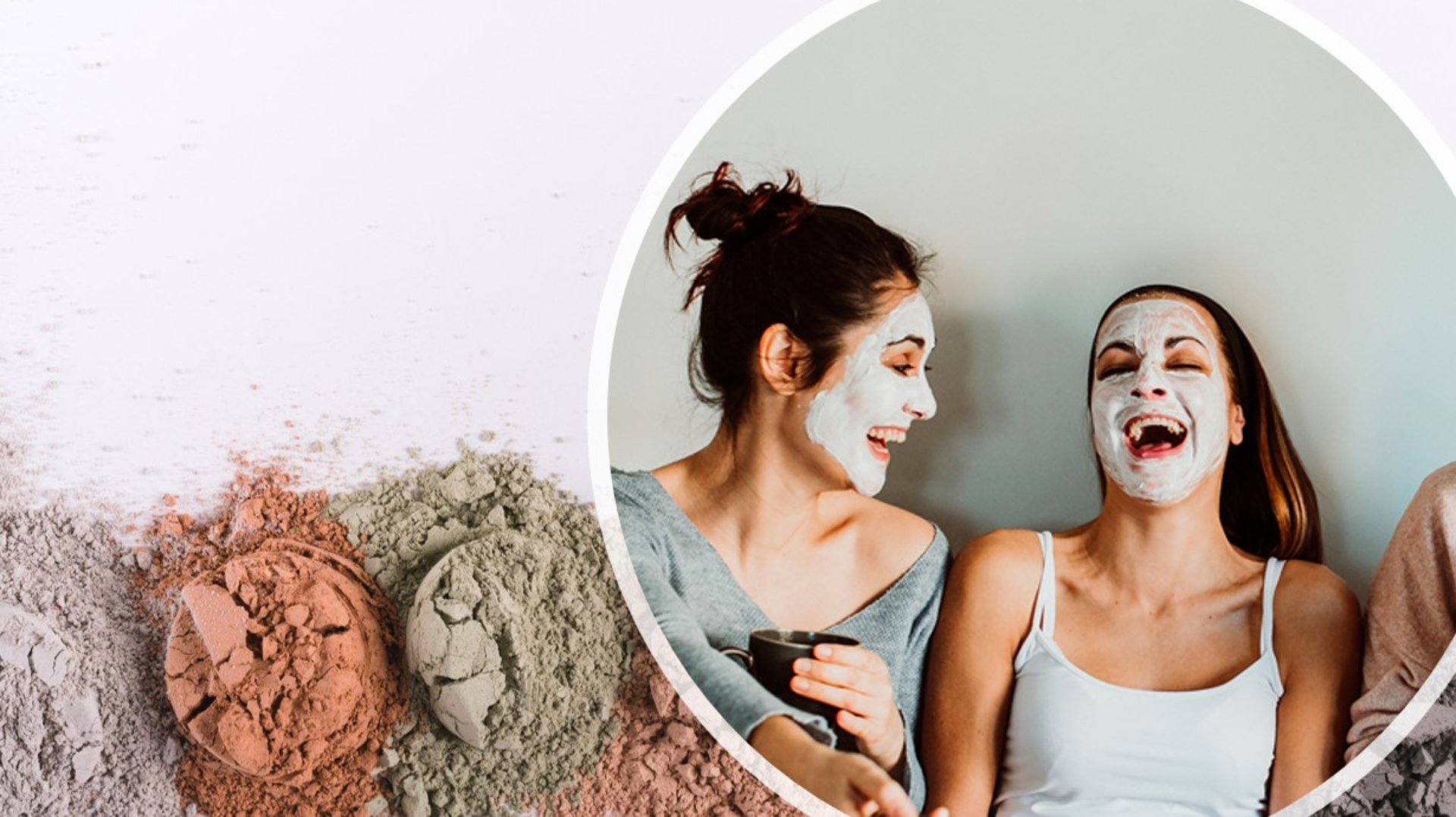
All About Clay Masks:
One of the most common questions I hear is, what is really a clay mask and what does it do?
Clay masks are a type of facial mask that are made with different types of clay, such as French sea clay, bentonite clay, or other varieties. These masks are used to treat a variety of skin concerns, including oily skin, acne, dryness, and signs of aging. They work by absorbing excess oil and impurities from the skin, as well as providing minerals and nutrients to nourish and revitalize the skin. They can help to improve skin texture, reduce the appearance of pores, and promote a more radiant complexion.
Here are some potential benefits of using a clay mask:
Deep cleansing: Clay masks can help to remove dirt, oil, and other impurities from your skin, leaving it feeling clean and refreshed.
Detoxifying: Some types of clay, such as bentonite clay, are known for their ability to absorb toxins from the skin, helping to purify and detoxify.
Exfoliating: Many clay masks contain small particles that can help to gently exfoliate the skin, removing dead skin cells and promoting a smoother, more radiant complexion.
Oil control: If you have oily or acne-prone skin, a clay mask can help to absorb excess oil and reduce shine.
Soothing: Some types of clay, such as French sea clay, have a soothing effect on the skin, helping to calm inflammation and irritation.
It is important to choose a mask that is appropriate for your skin type and to follow the instructions carefully to avoid over-drying or irritation.
There are several types of clay masks, each tailored to different skin types and concerns. Here are the most common types:

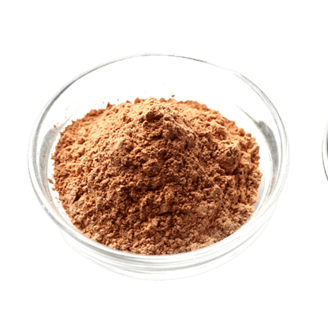
French Green Clay
French green clay, also known as little or Sea Clay, is a highly absorbent and mineral-rich clay known for its powerful detoxifying and healing properties. It is often found in skincare products, particularly face masks, because of its ability to deeply cleanse and rejuvenate the skin. Its green color comes from the presence of decomposed plant material and iron oxide.
Key Benefits of a French Green Clay Mask:
Deep Cleansing: French green clay is excellent for drawing out impurities, toxins, dirt, and excess oil from deep within the pores. This makes it a great option for people with congested skin or those prone to breakouts.Oil Absorption: It has strong oil-absorbing properties, making it effective for controlling excess sebum and reducing shine. It is particularly beneficial for those with oily or combination skin.

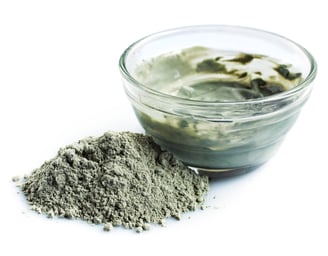
Tightening and Toning: French green clay helps to tighten and tone the skin, which can improve skin elasticity and reduce the appearance of large pores. This leaves the skin looking smoother and more refined.
Exfoliation: The slightly coarse texture of French green clay provides a mild exfoliating effect when applied, helping to slough off dead skin cells and improve skin texture.
Stimulates Circulation: When applied as a mask, it stimulates blood circulation, promoting better oxygenation of skin cells, which can lead to a healthier and more radiant complexion.
Anti-inflammatory Properties: French green clay has soothing and anti-inflammatory qualities, which can help calm irritation, redness, or inflamed acne. It is also commonly used to soothe skin conditions such as eczema and psoriasis.
Healing and Revitalizing: Rich in minerals like magnesium, calcium, potassium, and dolomite, French green clay helps nourish and revitalize the skin, leaving it feeling refreshed and rejuvenated after use.
Best For:
Oily and Combination Skin: Ideal for deeply cleansing, controlling oil, and minimizing breakouts.
Acne-Prone Skin: Great for reducing excess oil, treating blackheads, and clearing acne-prone skin.
Mature or Dull Skin: Its tightening and toning effects can improve elasticity and brighten a dull complexion.
Application:
Mix French green clay with water, rose water, or a hydrating ingredient (like aloe vera gel) to create a paste.
Apply an even layer to the face, avoiding the eye area.
Let it sit for about 10–15 minutes or until it starts to dry but not fully crack.
Rinse off with warm water and follow up with a moisturizer to restore hydration.
Precautions:
Due to its powerful absorbing properties, French green clay can be drying for those with dry or sensitive skin, so it’s important to monitor how your skin reacts and use it sparingly if needed. Always follow up with a good moisturizer to restore skin balance.
Overall, French green clay is a potent, purifying mask for those looking to cleanse, detoxify, and tone their skin, especially if they struggle with excess oil or breakouts..
Rhassoul Clay (Moroccan Lava Clay)
Also known as Moroccan Lava Clay, the Rhassoul clay is a natural clay mined from the Atlas Mountains in Morocco. It has been used for centuries in traditional Moroccan beauty routines, especially in skin and hair care, due to its exceptional ability to cleanse, detoxify, and nourish.
Key Benefits of Rhassoul Clay:
Gentle Cleansing: Rhassoul clay has a unique ability to cleanse the skin without stripping it of its natural oils. It binds with impurities, excess oil, and dirt, gently lifting them from the skin.
Oil Balancing: It helps regulate sebum production, making it effective for both oily and combination skin. While it absorbs excess oil, it still leaves the skin soft and hydrated.
Skin Softening and Smoothing: Rich in minerals like silica, magnesium, potassium, and calcium, Rhassoul clay nourishes the skin, improving its elasticity and softness. It also enhances skin texture, making it smoother and more refined.
Detoxifying: Rhassoul clay's ability to draw out impurities and toxins from deep within the pores makes it an excellent detoxifying treatment, especially for congested skin.
Exfoliating: When used as a mask or scrub, Rhassoul clay helps remove dead skin cells, promoting cell renewal and leaving the skin refreshed and glowing.
Non-Drying: Unlike many other clays, Rhassoul is known for its hydrating properties. It helps retain moisture in the skin, making it suitable for dry or sensitive skin types, as well as oily skin.
Improves Skin Clarity: Regular use of Rhassoul clay can help reduce blemishes, blackheads, and breakouts, resulting in a clearer and brighter complexion.
Hair Care Benefits: Rhassoul clay is also widely used for hair. It cleanses the scalp, removes product buildup, and strengthens hair while adding volume and shine.


Best For:
Combination to Oily Skin: Its balancing properties help regulate oil production while keeping skin hydrated.
Sensitive Skin: Rhassoul is gentler compared to other clays, making it suitable for sensitive skin.
Dull or Dry Skin: Its nourishing and hydrating effects are ideal for improving skin texture and moisture balance.
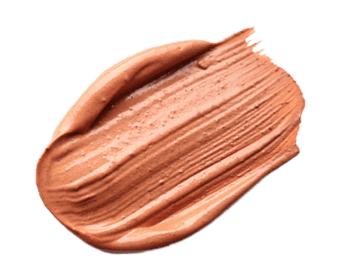

Application:
Mix Rhassoul clay with water, rose water, or aloe vera gel to create a smooth paste.
Apply to clean skin, leave on for 10–15 minutes, and rinse with warm water.
Follow with a moisturizer.
Hair Mask: Mix with water or herbal tea to form a paste, apply to damp hair and scalp, leave on for 10–15 minutes, and rinse thoroughly.
Fuller's Earth Clay
Fuller's Earth clay is a natural, mineral-rich clay widely known for its deep cleansing and oil-absorbing properties. It's been used for centuries as a beauty and skincare treatment due to its ability to purify and clarify the skin.
Key Benefits of a Fuller's Earth Clay Mask:
Gentle Cleansing:
Oil Control: Fuller's Earth is highly effective at absorbing excess oil from the skin, making it an excellent choice for people with oily or acne-prone skin. It helps reduce shine and prevent clogged pores
Deep Cleansing: The clay draws out impurities, dirt, and toxins from deep within the pores, leaving the skin feeling refreshed and thoroughly cleansed.

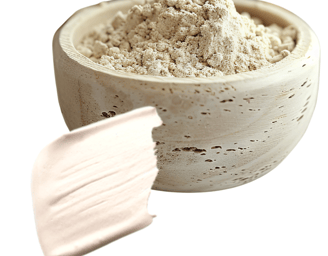
Brightening Effect: Fuller's Earth is known to lighten dark spots and hyperpigmentation over time, promoting a more even skin tone and a brighter complexion
Acne Treatment: Due to its ability to absorb oil and purify the skin, Fuller's Earth can help reduce acne breakouts and control inflammation, making it a popular choice for those with acne-prone skin.
Cooling and Soothing: It has a cooling effect on the skin, which can help soothe sunburns, rashes, and irritation.
Exfoliation: When mixed with water or other ingredients, Fuller's Earth clay gently exfoliates dead skin cells, promoting smoother skin texture.
Best For:
Oily and Acne-Prone Skin: Ideal for reducing excess oil, treating blackheads, and minimizing the appearance of pores.
Dull and Uneven Skin: Great for improving brightness and fading pigmentation.
Combination Skin: Can be used to target oily areas like the T-zone while providing overall deep cleansing.
Application:
Mix Fuller's Earth clay with water, rose water, or yogurt to form a paste.
Apply an even layer to clean skin, avoiding the eye area.
Leave on for 10–15 minutes or until it dries.
Rinse off with warm water and follow with a moisturizer.
While Fuller's Earth is powerful for detoxifying and controlling oil, it can be a bit drying, so it's important to moisturize after use, especially for those with sensitive or dry skin.
Bentonite Clay
Bentonite clay is a natural, absorbent clay formed from volcanic ash. It's highly prized in skincare for its deep cleansing and detoxifying properties, making it one of the most popular clays for face masks, particularly for oily and acne-prone skin. When mixed with water, bentonite clay produces an electrical charge that attracts and binds to impurities, effectively drawing them out from the skin.
Key Benefits of a Bentonite Clay Mask:
Deep Cleansing and Detoxifying - bentonite clay has a strong negative charge when activated with water, which helps attract and bind to toxins, bacteria, and impurities in the skin, pulling them out and detoxifying the pores.
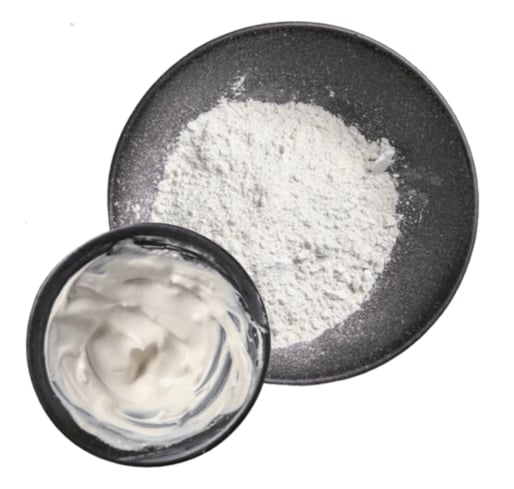

Oil Absorption - this clay is highly effective at absorbing excess oil, which helps to reduce shine, unclog pores, and prevent breakouts, making it ideal for oily or acne-prone skin types.
Acne Treatment - by drawing out bacteria and excess sebum from the skin, bentonite clay can help reduce inflammation and clear up acne, blackheads, and whiteheads. Its antibacterial properties make it great for keeping acne under control.
Pore Minimizing - bentonite clay tightens the skin and shrinks the appearance of large pores, giving a smoother and more refined complexion.
Best For:
Oily and Acne-Prone Skin: Bentonite clay’s ability to absorb excess oil and toxins makes it perfect for treating acne and reducing oiliness.
Congested Skin: Ideal for those with clogged pores or blackheads, as it works deep within the pores.
Combination Skin: Can be used to target oily areas, like the T-zone.
Application:
Mix bentonite clay with water (or apple cider vinegar for a more potent detox) to form a smooth paste.
Apply an even layer to the face, avoiding the eye area.
Leave on for 10–15 minutes (shorter for sensitive skin), until it begins to dry but isn’t completely hardened.
Rinse off with warm water and follow up with a gentle moisturizer to prevent over-drying.
Precautions:
Bentonite clay can be drying, so it is recommended to use it sparingly (once a week or as needed), especially if you have sensitive or dry skin. Always follow up with a hydrating product to restore moisture balance.
Avoid using metal bowls or utensils when mixing bentonite clay, as metal can reduce its effectiveness.
Overall, a bentonite clay mask is a powerful detox treatment that helps purify the skin, control oil, and combat breakouts, making it ideal for deep cleansing and rejuvenating the skin.
Soothing Irritation - it has anti-inflammatory properties, which can calm redness, irritation, and skin conditions like eczema or dermatitis. It's also commonly used to soothe skin irritations such as insect bites or rashes.
Exfoliating Properties - Bentonite clay can help gently exfoliate the skin, removing dead skin cells and promoting smoother, softer skin texture.
Toning and Firming - The tightening sensation you feel as the mask dries helps firm the skin, providing a temporary lifting and toning effect.
Kaolin Clay
Kaolin clay, also known as white clay, is one of the mildest and gentlest clays used in skincare. It’s named after the Kao-ling mountain in China, where it was first mined. Kaolin clay comes in different colors depending on its mineral content, with white being the purest and most common form. It is particularly beneficial for people with sensitive, dry, or mature skin, but is versatile enough for all skin types. Kaolin clay is a versatile, gentle option for anyone looking to purify, soothe, and brighten their skin. Whether you have sensitive, dry, or oily skin, kaolin clay provides effective cleansing and exfoliation without irritation or over-drying.


Oil Absorption - Although it’s gentler than other clays, kaolin can still absorb excess oil, making it suitable for people with oily or combination skin. It helps keep shine under control without over-drying the skin.
Soothing and Calming - Kaolin clay has soothing properties that can help calm inflamed or irritated skin. It’s commonly used to alleviate mild skin conditions such as redness, sensitivity, and acne inflammation.
Brightening - Regular use of kaolin clay masks can improve skin tone and texture, resulting in a brighter and more even complexion. It helps reduce dullness and bring radiance to the skin.
Tightening and Toning - Kaolin clay can gently tighten and tone the skin without causing irritation. It gives a mild lifting effect, leaving the skin feeling firmer and more refreshed.
Colors and Their Variations:
White Kaolin Clay: The most common and mildest form, suitable for sensitive and dry skin.
Pink Kaolin Clay: A blend of white and red clays, it’s slightly more absorbent than white kaolin but still gentle, ideal for normal to sensitive skin.
Red Kaolin Clay: Rich in iron oxide, this variation has stronger oil-absorbing properties, making it better for oily skin.
Yellow Kaolin Clay: A milder option for oily skin types, providing gentle exfoliation and brightening properties without being too drying.
Key Benefits of Kaolin Clay:
Gentle Cleansing - Kaolin clay is known for its mild and non-irritating cleansing properties. It helps remove dirt, oil, and impurities from the skin without stripping it of its natural oils, making it ideal for sensitive and dry skin types.
Mild Exfoliation - While being gentle on the skin, kaolin clay still provides a mild exfoliation that helps remove dead skin cells, revealing softer and smoother skin. Unlike harsher exfoliants, it doesn't cause micro-abrasions or irritation.
Best For:
Sensitive Skin: White kaolin is especially suitable for sensitive or easily irritated skin due to its non-abrasive, calming nature.
Dry Skin: It’s hydrating and doesn’t strip the skin’s natural oils, making it perfect for dry or mature skin.
Combination Skin: Kaolin helps balance oil production without being too drying or too heavy.
Application:
Mix kaolin clay with water, rose water, or another hydrating ingredient (like aloe vera) to form a paste.
Apply an even layer to clean skin, avoiding the eye area.
Leave the mask on for 10–15 minutes. Kaolin clay doesn’t dry as tight or hard as other clays, making it more comfortable to wear.
Rinse off with warm water and follow with a moisturizer to lock in hydration.
Precautions:
Kaolin clay is one of the gentlest clays available, so it can be used more frequently than stronger clays like bentonite or French green clay. However, overuse may still cause dryness, so it’s important to monitor your skin’s reaction and moisturize afterward.
